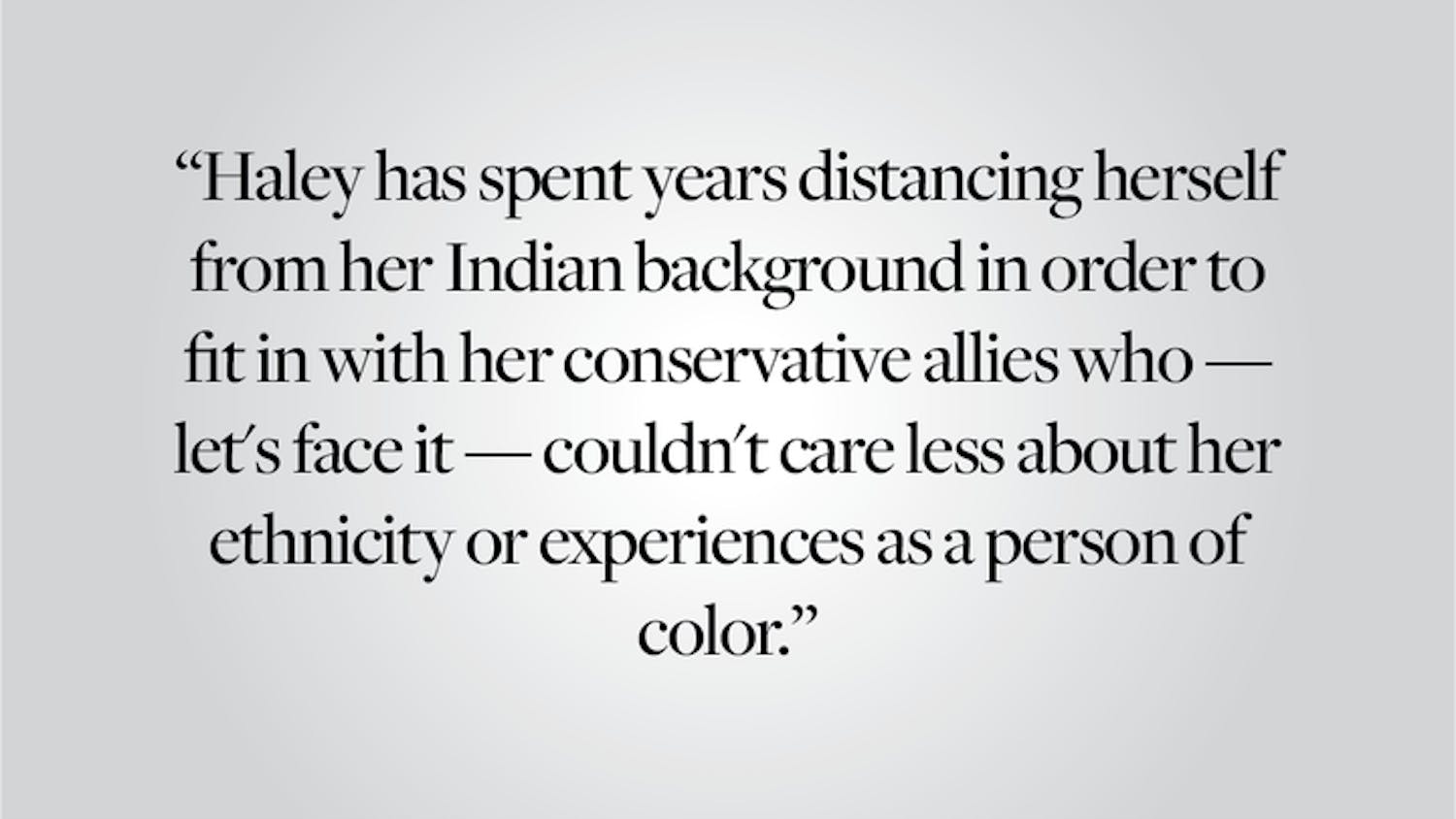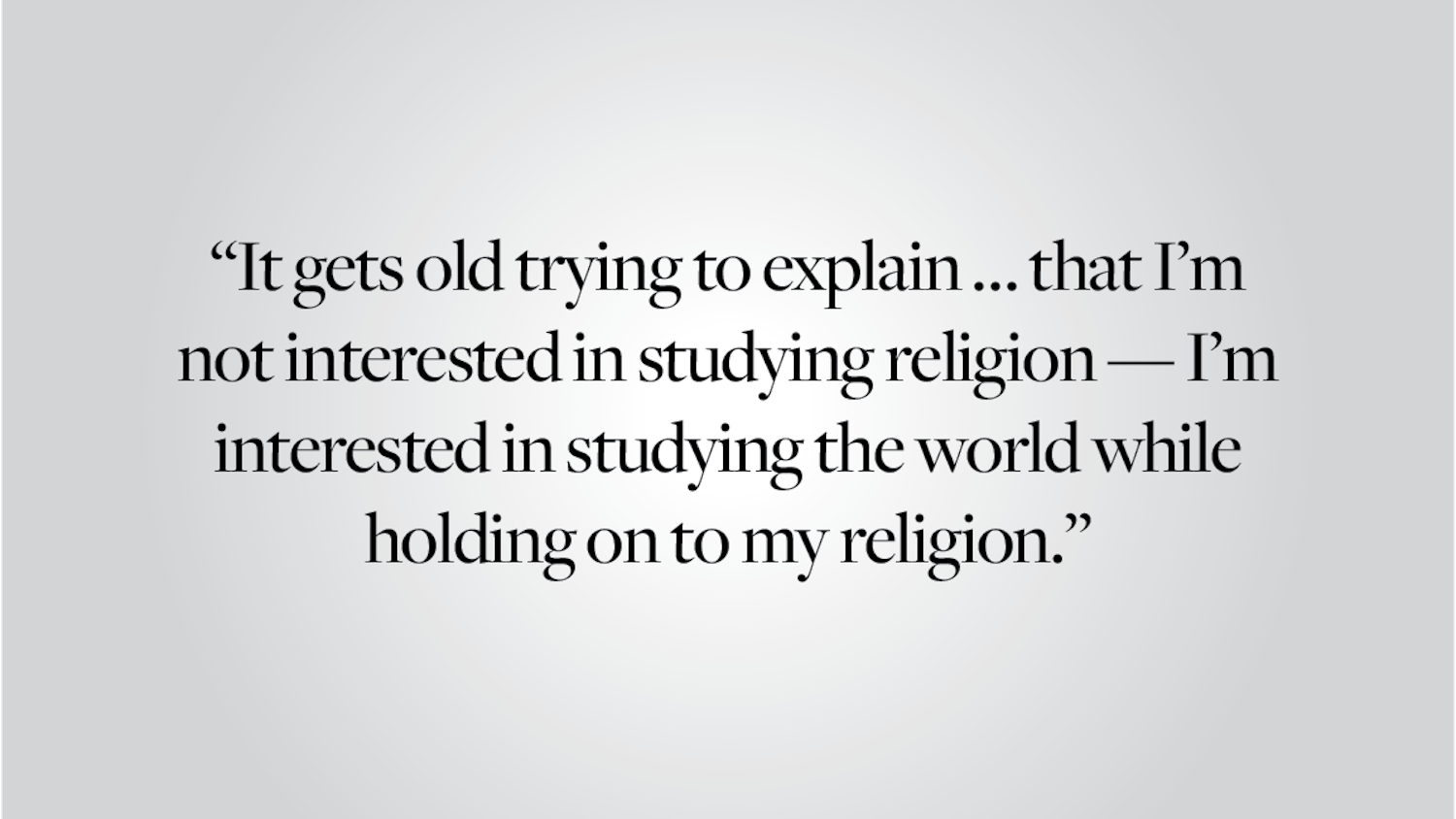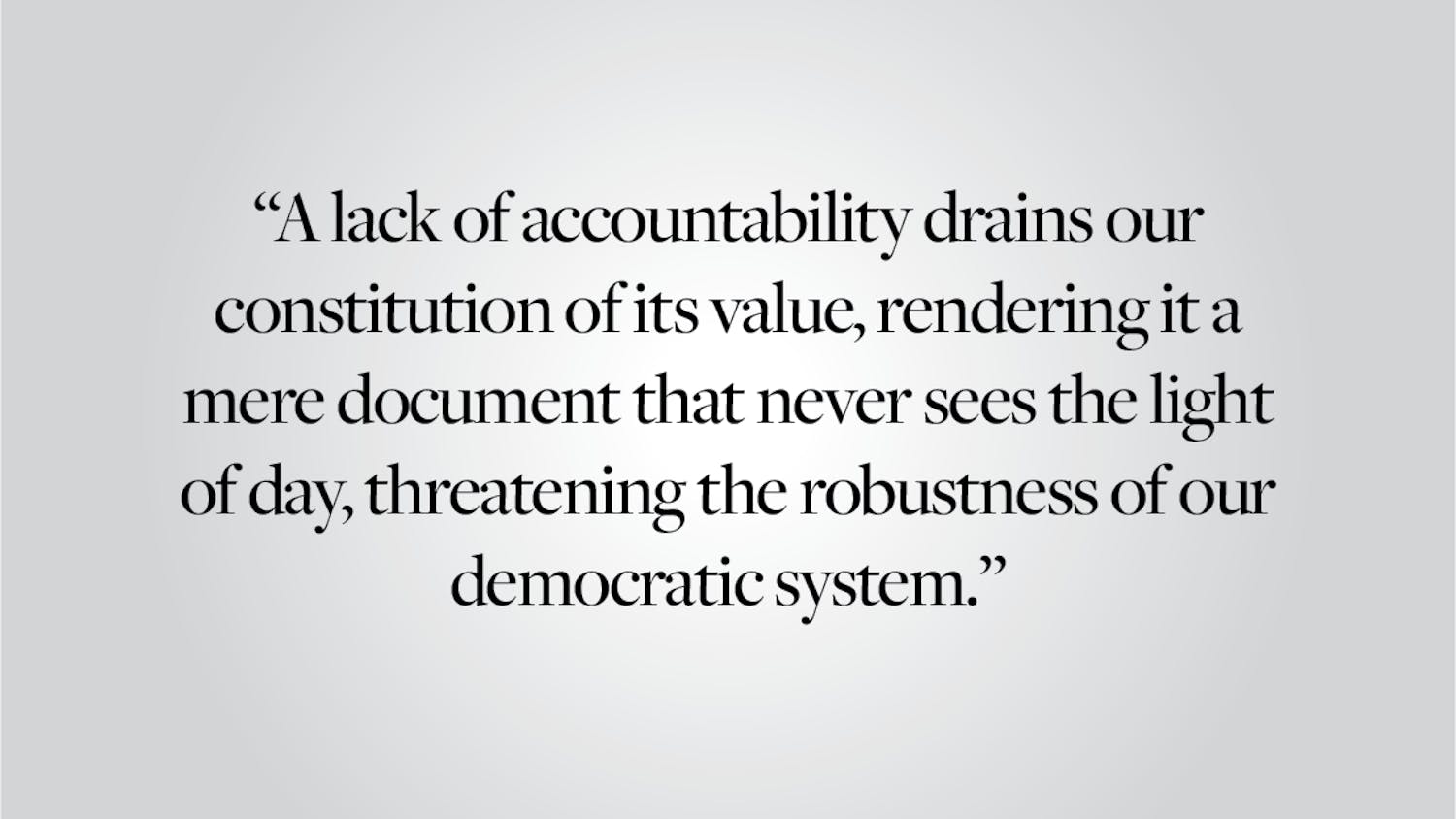In a recent op-ed, Brown Students for Justice in Palestine has insisted that its opposition to the sponsorship by Brown Moral Voices of Janet Mock’s canceled lecture was not anti-Semitic but was based upon worries about the “political implications” of that sponsorship. It would be wrong simply to dismiss accusations that the Israeli government has engaged in “pinkwashing,” as Adam Bennett ’16 does. Propaganda is alive and well, and the issue is complex. But SJP has presented no evidence whatsoever that Moral Voices’ invitation to Janet Mock, or its members’ decision to focus their attention this year on LGBTQ issues, was part of any pinkwashing campaign. What the members of SJP have offered instead is the observation that Moral Voices is connected to Brown/RISD Hillel, which is connected to Hillel International, which uncritically supports the Israeli government, which has engaged in and encouraged pinkwashing. But none of that is at all relevant unless you wish to convict merely by association, and the association in this case is at best tenuous.
The first problem with this strategy, then, is that it would make Senator Joseph McCarthy blush.
As recent experience in this country has amply demonstrated, if we’re going to make progress on some of the issues that are important to us, we need to be willing to work with people with whom we may disagree about other issues that are equally important to us. The contrary belief is what has, since 2009, underwritten the obstructionism of the Tea Party and has now brought us the nightmare that is the Republican presidential primary. The solution is not left-wing versions of Donald Trump and Sen. Ted Cruz, R-TX, but a reaffirmation of the democratic values of pluralism and compromise. Indeed, SJP’s insistence upon ideological purity is not only deeply troubling but ultimately self-defeating, since it will always be the powerful who get to decide whose perspective is legitimate.
Of course, I agree that “no one should have to choose between Palestinian or queer liberation.” But when “Hillel’s sponsorship forced that choice,” SJP not only chose the former but presumed to choose for the rest of us, too. SJP will no doubt insist that its goal was only to save the rest of us from having to make the choice for ourselves. But even ignoring the many other problems with such a response, such as its arrogance and paternalism: Did the members of SJP not even consider the possibility that their actions might lead Mock to cancel her lecture? Either they did not, in which case they were astonishingly naive and culpably negligent, or they did, in which case they didn’t care (enough) about the effects such a cancellation might have on the LGBTQ community at Brown.
SJP’s remark that “we cannot know the full extent of Mock’s reasoning in deciding not to come to Brown” is disingenuous. We know exactly why Mock canceled her lecture: because “the focus of Janet’s work was lost leading up to the proposed event.” That is a gentle way of saying that the issues she was going to discuss had been overshadowed by the controversy created by SJP. It would not surprise me if, in fact, Mock were deeply offended.
SJP owes both Mock and the LGBTQ community at Brown not just an explanation but also an apology. Their claim that they “regret the disappointment queer and trans students of color in particular have experienced” makes things worse, not better. That is not an apology, and SJP’s silence about how its actions have affected queer people at Brown who aren’t of color, or aren’t students, makes it painfully clear how little regard they have for us.
If there were any actual evidence of pinkwashing in this particular case, that would be different. But SJP has hardly even attempted to provide such evidence. Or do they think the rest of us so unable to think critically that our simply attending a lecture that had nothing to do with Israel — but was sponsored by an organization that (if not for SJP’s own actions) most of us wouldn’t even have known was funded through Hillel — would somehow cause us to care less about the plight of Palestinians? SJP’s insistence that “trans liberation, racial justice and intersectional feminism … cannot be discussed without considering the violence of the Israeli regime” is absurd, a mockery of intersectionality. We do not have to discuss everything at the same time. And thank goodness for that, since it would be difficult to talk at all otherwise.
SJP is not just saying that we ought to be able to discuss how Israel’s treatment of Palestinians intersects with LGBTQ issues. Of course we should. But if that were their only concern, it would be no reason to object to Moral Voices’ sponsorship of Mock’s lecture, since that would not have prohibited such discussion. It is irrelevant that Hillel International has restrictive policies about whom affiliates can support. None of those policies would have prohibited Mock from discussing whatever she wished to discuss, let alone prohibited attendees from asking whatever questions they wished to ask. To suggest otherwise is again disingenuous.
We are left, then, with the following problem: It is very unclear what might have led SJP to associate Mock’s lecture with the oppression of Palestinians. Or, rather: It is all too clear.
In 2002, I was one of over 400 signatories of a petition that, among other things, “call(ed) on (the Massachusetts Institute of Technology) and Harvard to divest from Israel and from U.S. companies that sell arms to Israel.” Reaction to the petition was predictable. Angry and even threatening phone calls were made to signatories, and we (and not just our actions) were labeled anti-Semitic. The charge was ridiculous, and for the very reason SJP mentions in its op-ed: It was based upon a familiar but nonetheless depressing inability to distinguish criticism of the Israeli government from prejudice against Jews.
I will here and now attest that such accusations are deeply hurtful. They should be made with great care and based upon very strong evidence, if made at all. I dare say that few of those who are now making such accusations against the members of SJP have exercised such care. Those who casually make such accusations should be ashamed of themselves, and those who are associated with Brown embarrass this institution.
But here’s the thing: If we who steadfastly oppose the Israeli treatment of Palestinians are going to defend ourselves against charges of anti-Semitism by insisting upon the distinction just mentioned, then we have a special obligation to be meticulous ourselves in observing it. The members of SJP have failed, on this occasion, to do that. As a result, they have not only undermined their own cause but have also embarrassed Brown.
In closing, let me just say this: If you are feeling good because you think this was directed at someone besides you, then you are wrong. It is directed at you. It is directed at all of us. If you aren’t guilty in this case, then you are guilty in some other case, and if you think you are too apathetic to be a target, then you are definitely a target. We all must do better.
Richard Heck P’16 is a professor of philosophy. He can be reached at richard_heck@brown.edu.
Please send responses to this opinion to letters@browndailyherald.com and other op-eds to opinions@browndailyherald.com.




